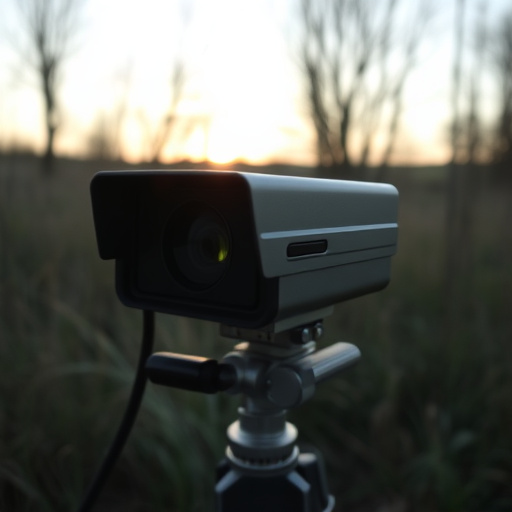Small hidden cameras for bedroom spaces offer discreet surveillance, enhancing security while raising privacy concerns. Legal boundaries exist regarding recording private spaces without consent, especially in bedrooms. As technology advances, these cameras become more sophisticated, highlighting the importance of tenant vigilance and landlord transparency. Ethical deployment respects privacy rights while serving legitimate monitoring needs.
“Unveiling the hidden corners of rental properties, this article delves into the practice of secret surveillance, particularly focusing on small hidden cameras in bedrooms. From discreet camera placement strategies to legal implications, we explore the ethical grey areas associated with monitoring tenant activities.
Learn about the advanced technology powering these tiny devices and their surprising capabilities. Understand the delicate balance between landlord rights and tenant privacy, especially when it comes to recording rental spaces.”
- Exploring Discreet Camera Placement in Bedrooms
- Uncovering Hidden Spots for Privacy Surveillance
- Legal Considerations: Recording Rental Spaces
- Advanced Technology: Small Cameras with Big Capabilities
- Ethical Dilemmas of Secret Surveillance in Homes
Exploring Discreet Camera Placement in Bedrooms
When it comes to exploring discreet camera placement in bedrooms, small hidden cameras for bedroom spaces offer a subtle yet powerful surveillance solution. These compact devices are designed to blend seamlessly into your décor, often resembling everyday objects like smoke detectors or light switches. Their strategic positioning allows homeowners or landlords to monitor activities without raising suspicion, ensuring peace of mind and enhanced security.
Bedrooms, being private sanctuaries, require careful consideration when setting up surveillance. Small hidden cameras in bedrooms can capture intimate moments while maintaining discretion. Whether it’s for personal safety, deterring theft, or verifying the well-being of a loved one, these cameras provide a layer of protection without compromising on privacy. With advanced technology, they offer clear visuals and remote access, enabling users to stay connected and informed from anywhere.
Uncovering Hidden Spots for Privacy Surveillance
In the quest for maintaining privacy in rental properties, it’s essential to be vigilant and aware of potential hidden surveillance spots. Unsuspecting tenants might discover small hidden cameras for bedroom use, cleverly concealed within seemingly innocuous items or fixtures. These clandestine devices can pose a significant invasion of privacy, making it crucial for renters to conduct thorough inspections of their living spaces.
Paying close attention to details like wall-mounted mirrors, ceiling fans, or even decorative picture frames could reveal hidden components of a surveillance system. With the advancement in technology, small hidden cameras capable of capturing high-definition footage have become readily available, making it easier for individuals to set up covert monitoring without raising suspicion.
Legal Considerations: Recording Rental Spaces
In many jurisdictions, recording rental spaces without explicit consent from tenants is a legal grey area. While some countries permit landlords to install hidden cameras in common areas or for specific security purposes, the rules regarding private spaces like bedrooms are stringent. The use of small hidden cameras for bedroom surveillance raises significant privacy concerns and violates tenant rights if not done with proper authorization.
Landlords must carefully consider local laws and inform tenants about any form of monitoring to ensure compliance. Failure to do so can lead to legal repercussions, including civil lawsuits and damage to the landlord-tenant relationship. It’s crucial to balance security needs with respect for tenant privacy to maintain a fair and harmonious rental environment.
Advanced Technology: Small Cameras with Big Capabilities
In today’s digital age, technology has advanced leaps and bounds, and this evolution extends to the world of secret surveillance. Among the most insidious yet powerful tools at play are small hidden cameras for bedroom environments. These minute devices pack a surprising punch, offering high-resolution footage, motion detection capabilities, and even night vision, all while remaining virtually undetectable. Their compact size allows them to be discreetly placed in crevices or integrated into everyday objects, making them an attractive option for those seeking comprehensive monitoring.
While the potential for privacy invasion is a cause for concern, these small hidden cameras for bedroom scenarios have legitimate uses. Landlords and property managers can utilize them to deter vandalism, ensure fair wear and tear, and maintain a safe living environment. However, it’s crucial that the use of such technology adheres to legal boundaries and ethical considerations, respecting the privacy rights of tenants.
Ethical Dilemmas of Secret Surveillance in Homes
The use of secret surveillance, particularly small hidden cameras in bedrooms, raises significant ethical dilemmas within the confines of a rental property. While landlords or property managers may argue that such measures are necessary for maintaining security and preventing damages, tenants’ privacy rights often take a back seat. The presence of these tiny cameras can create an atmosphere of distrust, making tenants feel constantly monitored and eroding their sense of personal space.
In light of this, it’s crucial to strike a balance between property owners’ concerns and tenants’ expectations of privacy. Laws regarding hidden surveillance vary across regions, but in general, open and transparent communication is key. Landlords should inform tenants about the existence of cameras, their purpose, and where they are located, allowing individuals to make informed decisions about their living arrangements. This transparency can help mitigate potential ethical issues and foster a healthier landlord-tenant relationship.
While small hidden cameras in bedrooms or rental spaces can offer landlords valuable insights and security, it’s crucial to balance this with ethical considerations. Unlawful surveillance crosses a line and violates tenant privacy rights. Landlords should prioritize open communication, transparency, and legal compliance when employing any form of monitoring. By understanding the technology’s capabilities and adhering to legal boundaries, landlords can maintain a safe environment without infringing on tenants’ personal space.
